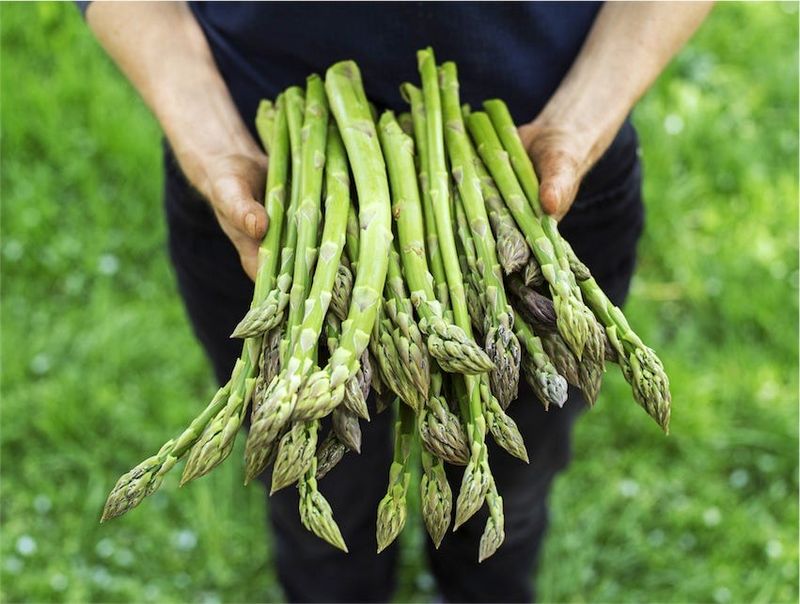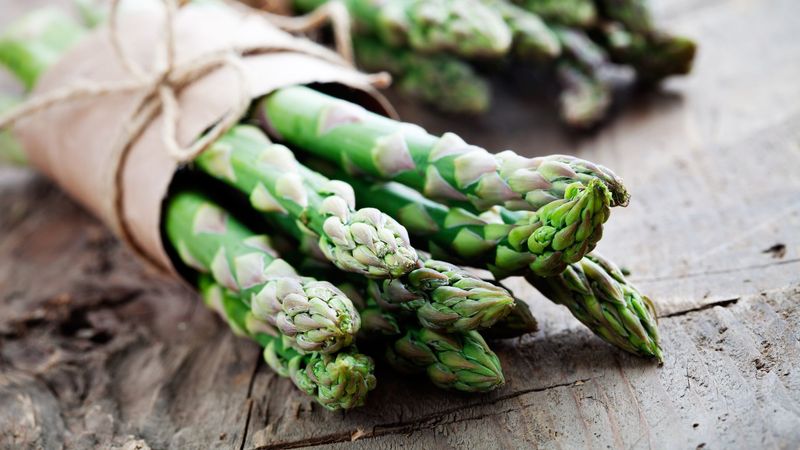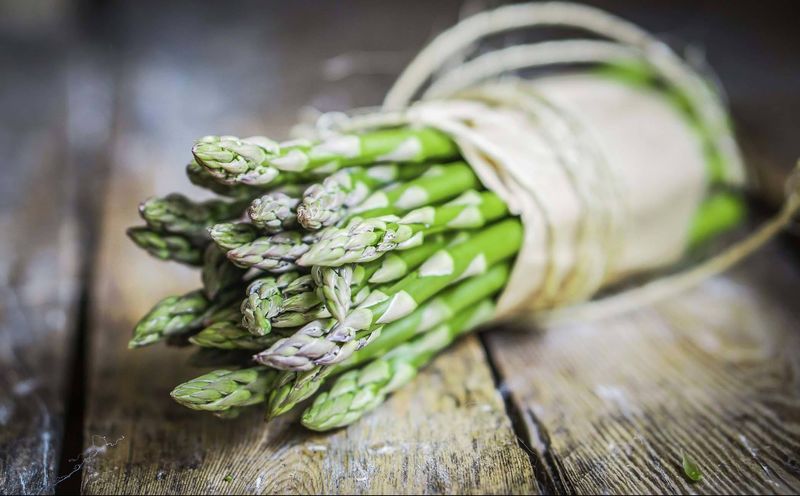6 Asparagus Myths That Distract and 5 Benefits That Go Beyond the Plate

Asparagus has long been celebrated for its unique flavor and numerous health benefits. However, there are many myths surrounding this versatile vegetable that often overshadow its true potential. In this post, we will explore six common misconceptions about asparagus, while also highlighting five compelling reasons why it deserves a place in your diet beyond its delicious taste. From understanding its seasonal versatility to recognizing its impressive nutritional profile, this article aims to debunk myths and celebrate the real benefits of asparagus.
1. Myth 1: Only Good When Fresh

Every foodie knows the delight of biting into crisp, spring asparagus. Yet, the myth that it’s only good fresh is misleading. Frozen or out-of-season asparagus, when cooked properly, retains both taste and nutrition. Roasting brings out its natural sweetness, while boiling often diminishes its flavor. This misconception may deter many from enjoying this versatile vegetable year-round. Try different cooking methods to appreciate its full range of flavors. Remember, asparagus doesn’t need to be fresh to be fabulous. Discover the culinary possibilities that await beyond the season’s confines.
2. Myth 2: Thicker Means Tougher

Imagine dismissing a book by its cover; similarly, many dismiss thick asparagus spears as tough. Contrary to this myth, thicker asparagus can be incredibly tender and even sweeter when prepared right. The key lies in trimming the woody ends and choosing the best cooking technique, such as roasting or grilling. These methods enhance the natural flavor, creating a delightful dish that’s bursting with taste. Don’t shy away from the larger spears at the market. Instead, embrace their potential and enjoy their unique taste experience.
3. Myth 3: Smelly Pee Means Bad

A peculiar odor after asparagus consumption often leads to unnecessary alarm. The truth is, this smell is a harmless byproduct of sulfur compounds being broken down. Rather than a cause for concern, it signifies that asparagus is being efficiently processed by your body. Many experience this, though not everyone notices it. Embrace the quirkiness of this vegetable and enjoy its nutritional perks without fear. The myth needlessly taints the reputation of a food that’s beneficial to your health.
4. Myth 4: Peeling is Necessary

Peeling asparagus might seem necessary for a refined dish, but it rarely is. Most asparagus stalks are tender enough to be cooked without any peeling. Simply snapping off the bottom ends is typically sufficient preparation. This myth adds an unnecessary step that can deter people from using asparagus in their meals. Embrace the simplicity of its preparation and enjoy its natural texture. Peeling might be reserved for particularly fibrous stalks, but in most cases, it’s an extra step you can skip.
5. Myth 5: Too Bitter for Kids

Parents often worry about the supposed bitterness of asparagus for young palates. However, when cooked correctly, it can be mild and appealing to children. Roasting with a touch of garlic and olive oil transforms it into a sweet and savory delight. The bitterness emerges mostly from overboiling, which strips away its natural charm. Introduce kids to this nutritious vegetable through creative cooking methods. Its vibrant color and engaging flavor profile can turn mealtime into a fun adventure.
6. Myth 6: Only Pairs with Hollandaise

Limiting asparagus to a brunch side drenched in hollandaise sauce is doing it a disservice. This versatile vegetable pairs beautifully with a wide range of dishes, from scrambled eggs to hearty pasta and even pizza toppings. Its adaptability makes it a star ingredient in various cuisines. By breaking free from culinary stereotypes, asparagus can shine in countless meal settings. Explore its compatibility with different flavors and discover new favorite combinations that go beyond traditional pairings.
7. Benefit 1: Great for Gut Health

Asparagus is a powerhouse for gut health, offering natural prebiotic fibers that nourish beneficial gut bacteria. This support leads to improved digestion and a balanced microbiome. By feeding your body’s good bacteria, asparagus fosters a healthy gut environment, promoting overall well-being. Its unique fiber composition boosts digestive efficiency and prevents bloating, making it an essential inclusion in your diet. Embrace this vegetable not just for its taste, but for its remarkable contribution to digestive health.
8. Benefit 2: Natural Detox Aid

In addition to its delightful taste, asparagus is renowned for its detoxifying properties. Rich in antioxidants and folate, it supports liver function, helping rid the body of excess salts and fluids. Its natural diuretic effect aids in flushing out toxins, contributing to a cleaner system. Asparagus stands out as a flavorful option for those seeking to enhance their body’s natural detox processes. Incorporating it into your meals can lead to a refreshing sense of vitality and health.
9. Benefit 3: Supports Healthy Pregnancy

Expectant mothers can greatly benefit from including asparagus in their diet, thanks to its high folate content. This B-vitamin is crucial for neural tube development, supporting a healthy pregnancy journey. Asparagus serves as a tasty and nutritious option for those planning to conceive or already expecting. Its role in prenatal health extends beyond vitamins, offering a blend of nutrients that nourish both mother and baby. Enjoy asparagus as a delicious way to support this critical life stage.
10. Benefit 4: Boosts Skin Health

With its rich vitamin E content and anti-inflammatory properties, asparagus helps protect skin from free radical damage. Regular consumption may enhance skin’s natural glow and resilience, making it a valuable addition to a beauty-conscious diet. Asparagus’s skin-boosting qualities provide a delicious way to promote a radiant complexion. Its unique combination of nutrients offers protective benefits that contribute to youthful, vibrant skin. Include asparagus in your meals to enjoy both culinary and cosmetic advantages.
11. Benefit 5: Mood and Energy Boost

Asparagus is rich in B vitamins, including B6 and folate, which support brain function and mood regulation. These nutrients contribute to reduced fatigue and improved mental clarity. By incorporating asparagus into your diet, you may experience increased energy levels and a more balanced mood. Its uplifting effects make it more than just a side dish, offering a holistic way to enhance mental and physical well-being. Celebrate asparagus for its ability to revitalize both body and mind.
